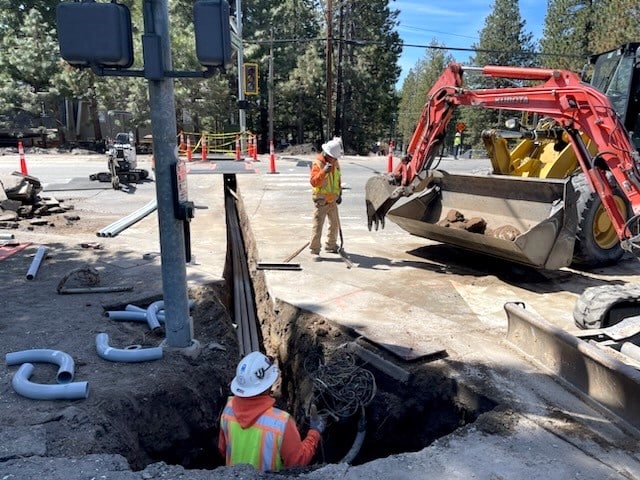In the vast landscape of infrastructure development, road construction stands as a fundamental pillar, connecting communities and facilitating economic growth. As we stride into the future, advancements in technology continue to revolutionize every aspect of our lives, including how we build roads. From sustainable materials to smart infrastructure, the future of road construction promises efficiency, durability, and sustainability like never before.
The Shift Towards Sustainable Materials
In an era increasingly defined by environmental consciousness, the construction industry is embracing sustainable practices with open arms. Traditional road construction materials, such as asphalt, are being challenged by eco-friendly alternatives that reduce carbon footprint and promote longevity.
One such innovation is the adoption of recycled materials. By utilizing recycled asphalt pavement (RAP) and reclaimed asphalt shingles (RAS), road construction companies are not only reducing waste but also conserving valuable resources. These recycled materials offer comparable performance to their virgin counterparts while significantly cutting down on costs and environmental impact.
Furthermore, the emergence of novel materials like pervious concrete and geopolymer concrete presents exciting opportunities for sustainable road construction. Pervious concrete allows water to pass through, reducing runoff and minimizing flooding, while geopolymer concrete offers enhanced durability and resistance to harsh environmental conditions. By incorporating these materials into road construction projects, we can create resilient infrastructure that withstands the test of time.
Embracing Smart Infrastructure
In the digital age, connectivity is key, and roads are no exception. The concept of smart infrastructure is reshaping the way we design, build, and manage roads, paving the path for safer and more efficient transportation systems.
One of the primary components of smart roads is the integration of sensors and IoT devices. These sensors monitor various parameters such as traffic flow, temperature, and pavement condition in real-time, allowing authorities to make data-driven decisions and proactively address maintenance issues. For example, sensors embedded in the pavement can detect cracks and potholes before they escalate into major problems, enabling timely repairs and minimizing disruptions to commuters.
Moreover, the advent of autonomous vehicles is driving the demand for intelligent road systems that can accommodate self-driving cars safely and seamlessly. From dedicated lanes for autonomous vehicles to dynamic traffic management systems, smart infrastructure is laying the groundwork for the transportation revolution of tomorrow.

Leveraging Robotics and Automation
Robotic technology is no longer confined to science fiction; it is rapidly becoming a reality in the realm of road construction. Automated machinery and robotics are streamlining construction processes, enhancing precision, and improving worker safety.
One example of robotic innovation in road construction is the use of 3D printing technology to fabricate bridge components and culverts. By layering concrete or other suitable materials according to digital designs, 3D printers can construct complex structures with unparalleled efficiency and accuracy, reducing both construction time and costs.
Furthermore, autonomous construction vehicles equipped with advanced GPS and imaging systems are revolutionizing earthwork operations. These self-driving machines can precisely grade terrain, lay asphalt, and perform other tasks with minimal human intervention, increasing productivity and minimizing errors.
Conclusion
As we gaze towards the horizon of the future, the landscape of road construction is ripe with possibilities. Sustainable materials, smart infrastructure, and robotic automation are reshaping the way we conceive, build, and maintain roads, ushering in an era of innovation and progress. By embracing these advancements, we can create road networks that not only connect us physically but also sustain our planet for generations to come. If you want to read more about road works, you may visit Line Marking Pro for further info.
